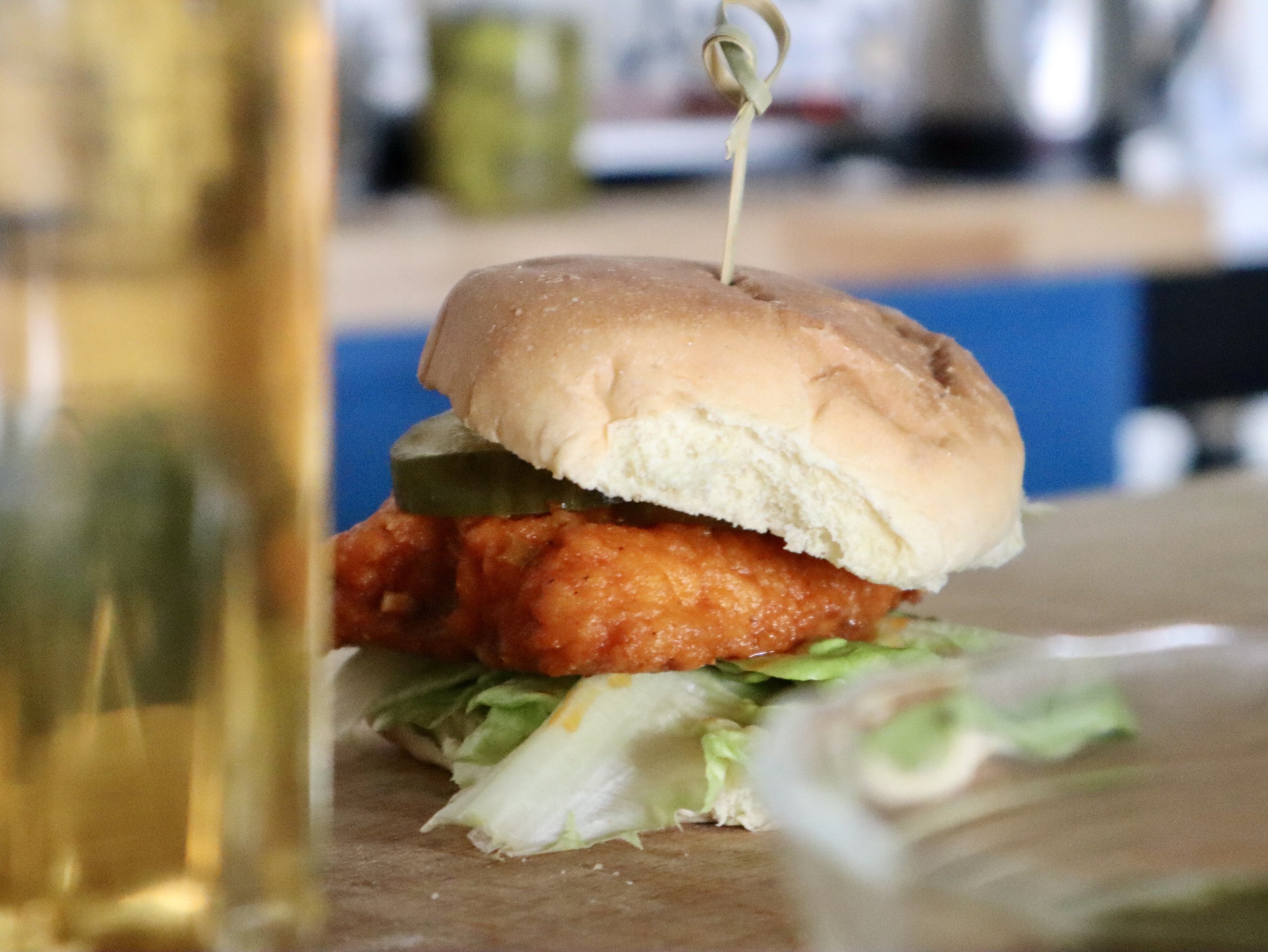Gone Fishing
story by Donna Hecker & photography by Talitha Schroeder
It was a cool damp morning, with sunrise still to come, when several of us climbed into Steven Clem’s big black Suburban for a three-hour drive to the western part of the state. We’d been serving Kentucky Proud wild-caught catfish for several years and were headed down to see where it came from.
Almost all the catfish sold in the United States is farm-raised. What we don’t raise domestically comes from Vietnam, China and Indonesia, although the Vietnamese product is actually a different fish and can’t legally be called catfish. To get a sense of just how big the seafood import business is, consider that, according to the USDA, we import about 80% of our seafood.
In fact, over two thirds of all catfish sold in the US is imported, and out of what’s left, almost 94% comes from just four states – Alabama, Arkansas, Louisiana and Mississippi. A few others, including Kentucky, also produce farm-raised catfish but it’s a very small share of the market. So it doesn’t take a math whiz to appreciate just how little wild-caught catfish is out there for restaurants and consumers to buy, maybe just one or two percent of the total supply.
Which is where Heath Frailey comes into the picture. Heath grew up on a family farm in Calhoun, Ky. but always loved fishing. When we met him, Heath was wearing a t-shirt with the message “If you want me to listen talk about fishing”.
Heath sells wild-caught catfish to Steven Clem of Clem’s Refrigerated Foods in Lexington. And Steven sells Heath’s catfish to our restaurants, where we griddle, blacken, or fry it up in Weisenberger Fish Batter Mix. Our guests like Heath’s catfish so much that last year we bought over 1000 pounds every month, company-wide.
But we’d never been to the source of all that catfish, which is how we ended up at Lake City Fresh Fish Market just north of Grand Rivers, Ky., sandwiched between the Tennessee and Cumberland Rivers which form Kentucky Lake and Lake Barkley. Heath’s catfish processing facility fills a cavernous space behind the retail counter of the fish market.
The actual processing takes place in a fairly small room dominated by a few stainless steel prep tables and lots of plastic tubs. There’s a guillotine-type machine that removes the fish’s head and spinning blades that skin it; everything else is done by hand by a couple of guys in rubber boots and plastic aprons wielding razor sharp knives.
Here’s what you need to know, though. Like meat, wild-caught catfish has to be processed in a USDA-inspected facility. And Heath’s volume doesn’t exactly reach the level where an inspector can be there daily. So what to do when you’ve got fishermen out on the lake catching fish for you but no way to process them immediately?
The solution is to bring the fish in live and keep them in holding tanks for a day or so until the inspector arrives. The facility, a former lumber business, is filled with freshwater tanks where the catfish chill until Heath’s team is ready to turn them into filets. Trucks hauling boat trailers can pull right into the space and unload their catch directly into the tanks.
It’s a small operation. Heath says he has eight or ten fishermen who bring in catfish – mostly blues and channel cats from Kentucky Lake and Lake Barkley – and they’re not getting any younger. Add the two guys who process the fish and it’s easy to see why Steven Clem can’t buy as much wild-caught catfish for his restaurant customers as he’d like to.
Which makes us appreciate Heath’s catfish even more. As Holly Hill Executive Chef Tyler McNabb says, the flavor of wild-caught is superior to farm-raised.
It tastes better than anything I’ve ever purchased. The texture is firm but tender. Succulent but not mushy. A super clean taste. Our wild-caught Kentucky lake catfish is the cleanest you can get and I challenge anyone to prove me wrong.
We could buy farm-raised catfish and sometimes we have to, to supplement what Heath is able to supply. And when we do, we make sure we’re buying US or KY Proud fish. But supporting a small operation like Heath’s or a family business like Clem’s Refrigerated Foods is our reason for being. It’s our shot across the bow at America’s industrialized food system.
As a young grower with an old soul told us last summer, the best way to select good food is to “know your farmer.” And your fisherman too.
Related Content
Buffalo Catfish Slider
Our Buffalo Catfish Sliders are a popular item on our Smithtown Seafood menu but they're easy to make at home, too. Our recipe makes plenty of Buffalo sauce, it's just a tasty bonus!
© 2024, Holly Hill Inn/Ilex Summit, LLC and its affiliates, All Rights Reserved









